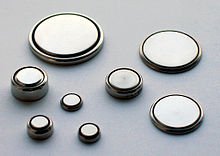Key members of Congress recently sent an important message to the State Department regarding the final negotiations on a global mercury treaty beginning on January 13. The U.S. government should provide strong leadership at these negotiations and ensure this first-ever mercury treaty truly protects public health, in part by phasing out the use of mercury in many products.
Mercury pollution is a big problem. Even at low concentrations, mercury impairs childhood development. For most pregnant women and children, eating fish is the main source of exposure to mercury. Sadly, 81 percent of our fish advisories in the U.S. warning us about contamination are due, in whole or in part, to mercury pollution.
We need a strong global treaty to stop mercury pollution and protect the safety of the fish(and other aquatic food sources) we eat. Mercury is a global pollutant meaning once released, it can travel around the world and contaminate our waters. And the fish we eat comes from around the globe as well.
An important issue in the final treaty negotiations is whether mercury can continue to be used in many products, when high quality, mercury-free alternatives are or will soon be available globally. The U.S. has been a leader in phasing out products that contain mercury. You may recall using mercury fever thermometers years ago. Many states have already banned the sale of these thermometers and the major drug store chains won't stock them, so most people in this country buy digital thermometers now. Yet, around the world, mercury thermometers are still produced, consuming about 200 metric tons of mercury each year.
 Similarly, U.S. manufacturers used mercury to produce button bell batteries for watches and hearing aids. Since last year, however, the vast majority of button cells they produce are mercury free and all button cell batteries they produce will be mercury free by 2015. The problem is that manufacturers in other countries can still use mercury and export their mercury batteries to this country, thus undermining the efforts of our domestic manufacturers to do the right thing.
Similarly, U.S. manufacturers used mercury to produce button bell batteries for watches and hearing aids. Since last year, however, the vast majority of button cells they produce are mercury free and all button cell batteries they produce will be mercury free by 2015. The problem is that manufacturers in other countries can still use mercury and export their mercury batteries to this country, thus undermining the efforts of our domestic manufacturers to do the right thing.
Most of the push in the US to phase out the use of mercury in products has been attributable to state laws and industry initiative. But in the closing days of the last Congress, Senator Whitehouse and Representative Eshoo introduced legislation to make the phase outs applicable nationally and complete the transition to mercury-free products. They plan to re-introduce the legislation after the new Congress begins.
So, federal law does not yet reflect the progress already made in the US, but as the Senators pointed out to the State Department, "Industry, public health, and the environment should not be undercut by weak treaty measures simply because U.S. federal law needs updating".
We at NRDC could not agree more. The unprecedented opportunity to chart the global transition to mercury-free products and processes through the mercury treaty cannot be wasted, and our government should be building upon the progress made here in the U.S. by exercising vigorous leadership in Geneva.
Here's a link to information about the upcoming treaty negotiation next month.


